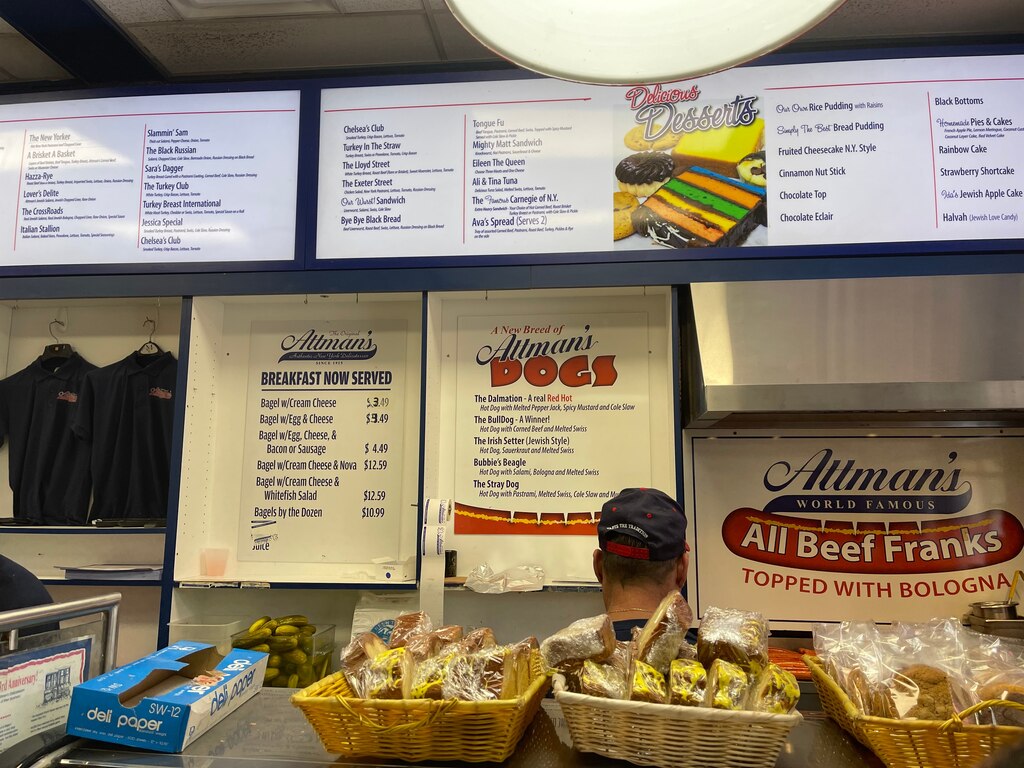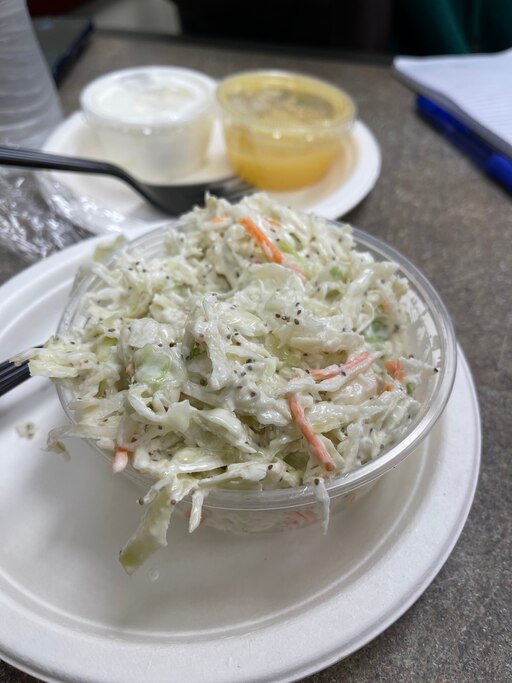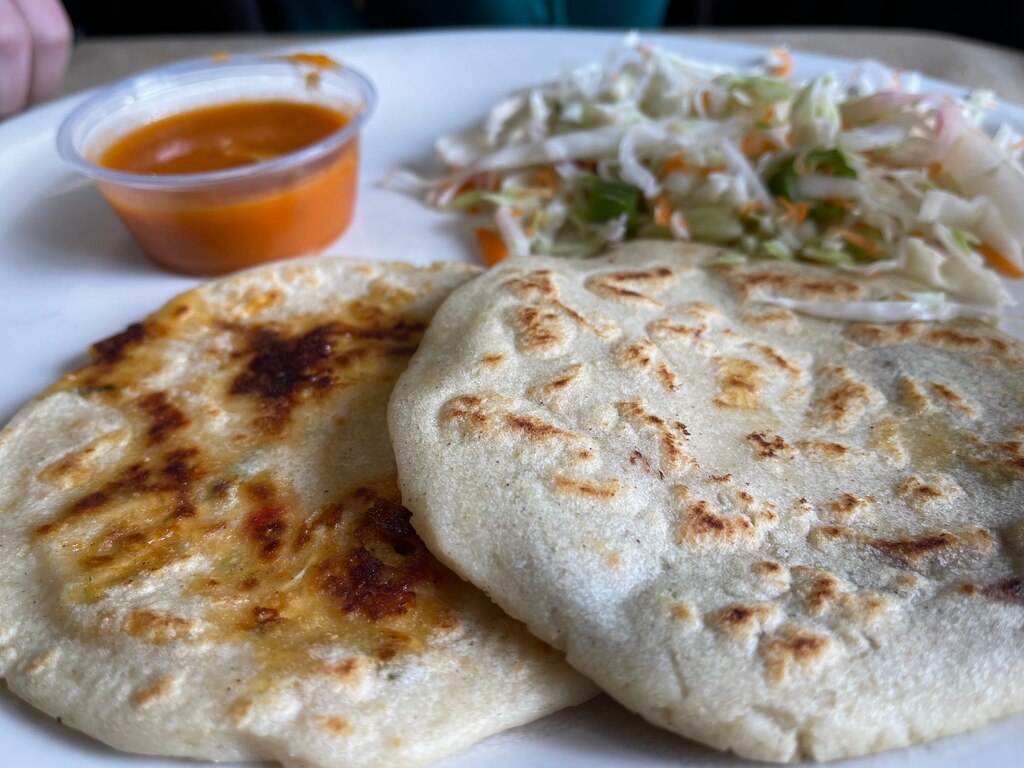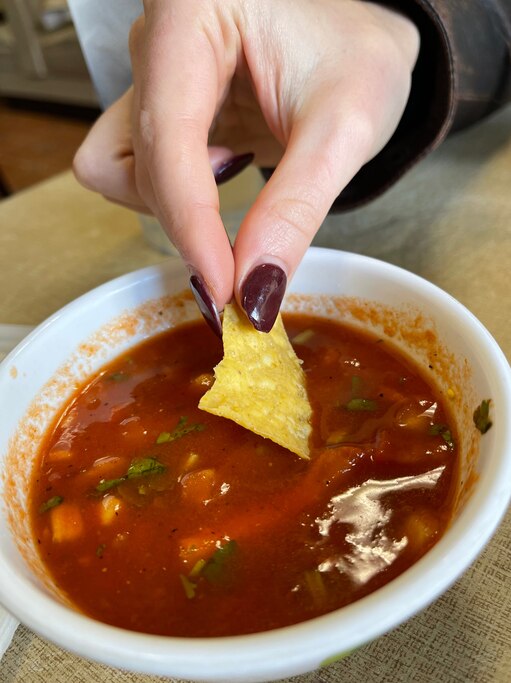I never woke up hungry as a child.
After late-night hospital shifts, my father stayed up to peel potatoes and fry pepperoni, onions and peppers, forming a hash from yesterday’s kitchen leftovers. My little sister and I grew up calling it Hoppel Poppel, which in German allegedly refers to the awkward flipping motion involved in cooking the potatoes.
As a kid, I did not realize that I had been waking up to the smells of my father’s childhood.
In my Long Island, New York, suburb, he would say that cooking for someone is like inviting them inside your home. A skeptical mind can see everything from a person’s health to their upbringing.
The Baltimore Banner thanks its sponsors. Become one.
So, in this week’s Dish, I wanted to take the dozens of restaurant recommendations provided by readers and dive into the family-run eateries shaping what it means to find a home in Maryland.
At 25, I am starting over in a new city. I am nowhere near the cooks that my parents are. And in the last five years I was diagnosed with celiac disease, an autoimmune disorder triggered by gluten — taking away many of the foods that once brought me comfort.
Despite even the most whole-hearted attempts by my father to find gluten-free alternatives, my perspective on food has changed. The diagnosis forced me to examine what I was eating and explore the story behind the meal. Anyone with dietary restrictions knows it can be difficult to keep from getting bogged down by the details of how a dish was made or why. But in discovering my new city, it only made sense to ask those questions alongside the man who taught me to eat.
For my first weekend in Charm City, my dad and I explored three family-operated local eateries said to be some of the best by Banner readers. I’ll continue to venture around to other favorites in the Baltimore-area food scene as part of an effort to both share your stories and get to know your home and now mine.
Of course, the first stop was Attman’s Delicatessen.
The Baltimore Banner thanks its sponsors. Become one.
Attman’s Deli

The nearly 108-year-old deli was one of many Jewish-run businesses lining East Lombard Street in the 1930s. Playfully named “Deli-row”, the storefronts offered a diversity of breads and sliced meats. Black-and-white pictures splayed across the Attman’s dining room show crowded street corners with ox-like kitchen staff shouldering juices and barrels of smoked meats to their counters.
None of that existed when my dad and I arrived on a recent weekend morning.
An untrained eye might have driven straight past the storefront’s signature blue awning. Below it were cardboard signs plastered to the windows assuring customers what they were about to eat was “Authentic,” “Jewish,” and “New York-styled.”
“You know, if you’re saying you’re a New York Deli, you have to have good pastrami and corned beef,” said my dad, who married into a family where even those now living outside the borough still speak as if from Brooklyn.
Upon entering Attman’s doors we were launched into what felt like a scene from “Seinfeld.” A sea of customers shouted numbers and guarded spots in a line that stretched across the deli countertop, touching the back wall. My dad was transported.
The Baltimore Banner thanks its sponsors. Become one.
“There’s such a profound attention to detail,” he said.

We grabbed cream sodas, pickles, an Attman’s special hot dog with fried bologna, and a pastrami-on-rye sandwich. Many of the foods were off limits because of my celiac, so I listened. It was musical: the snap of the hot dog casing, the crunch of our kosher pickles, the persistent squirts from the bottom of the Attman’s trademarked mustard bottle.
The rye bread was soft, made fresh by an old family recipe, according to staff. It stayed firm, holding still every layer of tender pastrami as my dad dipped another bite in mustard. Our hefty side of coleslaw added a needed kick of vinegar to the meal and the latkes, otherwise known as potato pancakes, were fluffed into thick round cakes, perfectly suited for scooping applesauce.
“I asked them where they got their hot dogs, and the manager said if he told me he’d have to kill me,” my dad said with excitement.
“That’s how you know its real.”
The Baltimore Banner thanks its sponsors. Become one.
Samos

In a neighborhood also hailing from the 1930s where blue-and-white flags paint every other storefront sits Samos, a family-run eatery on Oldham Street named for the island in the East Aegean Sea.
Even in the early afternoon, the spot’s blinded windows and dimly lit front door can trick patrons into thinking of the spot as undiscovered, or worse, maybe shuttered for good.
But that is far from the truth.
Upon entering Samos we were met with a burst of sound and heat. Multiple groups of people from all ages lined the side of the restaurant waiting for a table. Next to them was a counter top demarcating the seating area from the kitchen, where a chef hunched over a steel grill, pressing into two branzinos charred by a growing fire.
Smells of saffron and oregano coated the air. As we waited, the chef appeared to temporarily remove his fish from the flames to sing happy birthday to a large table still scooping leftover rice from their plates.
The Baltimore Banner thanks its sponsors. Become one.
Without looking at a menu, we ordered the grape leaves, drizzled with an egg-lemon avgolemono sauce and packed into rectangles with dill, rice and beef. A great appetizer for celiacs and other gluten-free veterans, the grape leaves were warm, but still boasted a twinge of vinegar to cut the rich sauce and crumbled beef inside.

Then came the moussaka. The 1920s-helmed Grecian response to the Italian’s lasagna is a dish layered in eggplant, beef and tomato sauce, topped with a thick cover of bechamel, a cheesy sauce of butter and flour. The Samos tomato sauce was almost sweet, emboldening the beef and leaving a tangy residue throughout the plate. My dad ordered his signature side of gyro meat, which he ate off a plate of tomatoes and feta to “cap off” the meal.
Families with young children surrounded us. Kids raced around dirty from soccer practice or seemingly cleaned and dressed up just for the meal. It was loud but vibrant, a fitting atmosphere for rich food piled onto large plates.
El Salvador Restaurant

On the busy corner of South Broadway and East Pratt Street is El Salvador Restaurant, which staff said was among the first Latin American eateries to appear in the Fells Point neighborhood about six years ago.
Large photographs of the spot’s owner and his family dotted the restaurant’s back wall, along with a tucked-away image of former president Barack Obama sucking the last chunk of meat from a skewer.
The Baltimore Banner thanks its sponsors. Become one.
It was quiet when we arrived in the early afternoon, but based on the framed photographs, the spot is a landmark for colorful salsa nights and family milestones. We were greeted with a bowl of salsa and chips as we flipped through the menu’s many pages.
Compared to many other Latin American cuisines, the dishes here focused on simplicity. In many cases, they are less spicy, in part due to the different seasonings traditionally available to Salvadorans, with a heightened focus on oregano, paprika and garlic.

The salsa was fresh, with small strips of tomatoes adding a crunch to each bite. Of course, we ordered the national dish of El Salvador: pupusas.
The thick cakes made of either cornmeal or rice flour came stuffed with cheese, chicken, beef and beans. On the side, we had curtido, a type of coleslaw, that added a fresh bite of vinegar to offset the rest of the meal.
The cakes were large, with each pull of the dough leaking strings of cheese from the circular pocket.
“We remind the people who are here of home,” the manager told us as we stuffed the remaining bits of cheese and meat into our mouths. “That is the goal. … That is what we are here for.”




Comments
Welcome to The Banner's subscriber-only commenting community. Please review our community guidelines.